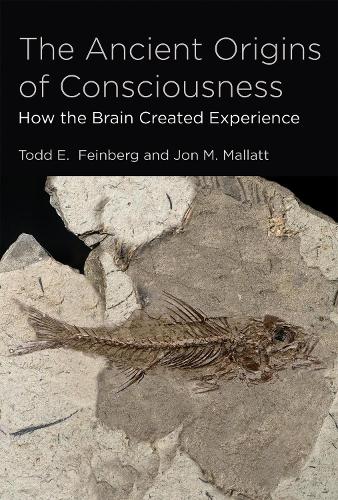
The Ancient Origins of Consciousness: How the Brain Created Experience
(Paperback)
Publishing Details
The Ancient Origins of Consciousness: How the Brain Created Experience
By (Author) Todd E. Feinberg
By (author) Jon M. Mallatt
MIT Press Ltd
MIT Press
8th September 2017
United States
Classifications
Professional and Scholarly
Non Fiction
Cognition and cognitive psychology
Evolution / Evolutionary biology
153
Winner of Honorable Mention, 2017 PROSE Awards, Biological Science 2017
Physical Properties
Paperback
392
Width 156mm, Height 235mm, Spine 24mm
Description
How consciousness appeared much earlier in evolutionary history than is commonly assumed, and why all vertebrates and perhaps even some invertebrates are conscious.How is consciousness created When did it first appear on Earth, and how did it evolve What constitutes consciousness, and which animals can be said to be sentient In this book, Todd Feinberg and Jon Mallatt draw on recent scientific findings to answer these questions-and to tackle the most fundamental question about the nature of consciousness- how does the material brain create subjective experience After assembling a list of the biological and neurobiological features that seem responsible for consciousness, and considering the fossil record of evolution, Feinberg and Mallatt argue that consciousness appeared much earlier in evolutionary history than is commonly assumed. About 520 to 560 million years ago, they explain, the great "Cambrian explosion" of animal diversity produced the first complex brains, which were accompanied by the first appearance of consciousness; simple reflexive behaviors evolved into a unified inner world of subjective experiences. From this they deduce that all vertebrates are and have always been conscious-not just humans and other mammals, but also every fish, reptile, amphibian, and bird. Considering invertebrates, they find that arthropods (including insects and probably crustaceans) and cephalopods (including the octopus) meet many of the criteria for consciousness. The obvious and conventional wisdom-shattering implication is that consciousness evolved simultaneously but independently in the first vertebrates and possibly arthropods more than half a billion years ago. Combining evolutionary, neurobiological, and philosophical approaches allows Feinberg and Mallatt to offer an original solution to the "hard problem" of consciousness.
Reviews
[Feinberg and Mallatt's] neuroevolutionary approach is the best we will have if we are to respect the power of our own human consciousness and also to locate it within a biological framework.
* The Guardian *Author Bio
Todd E. Feinberg is Clinical Professor of Psychiatry and Neurology at Icahn School of Medicine at Mount Sinai, New York and coauthor (with Jon M. Mallatt) of The Ancient Origins of Consciousness- How the Brain Created Experience (MIT Press). Jon M. Mallatt is Clinical Associate Professor in the WWAMI Medical Education Program at the University of Washington and the University of Idaho and coauthor (with Todd E. Feinberg) of The Ancient Origins of Consciousness- How the Brain Created Experience (MIT Press).
